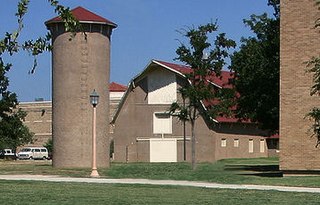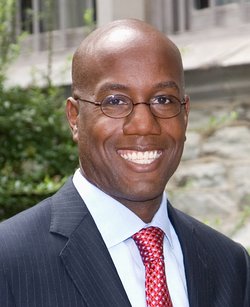
A community college is a type of undergraduate higher education institution,generally leading to an associate degree,certificate,or diploma. The term can have different meanings in different countries:many community colleges have an open enrollment policy for students who have graduated from high school,also known as senior secondary school or upper secondary school. The term usually refers to a higher educational institution that provides workforce education and college transfer academic programs. Some institutions maintain athletic teams and dormitories similar to their university counterparts.

ArtCenter College of Design is a private art university in Pasadena,California.

Adult education,distinct from child education,is a practice in which adults engage in systematic and sustained self-educating activities in order to gain new forms of knowledge,skills,attitudes,or values. It can mean any form of learning adults engage in beyond traditional schooling,encompassing basic literacy to personal fulfillment as a lifelong learner,and to ensure the fulfillment of an individual.

Mentorship is the patronage,influence,guidance,or direction given by a mentor. A mentor is someone who teaches or gives help and advice to a less experienced and often younger person. In an organizational setting,a mentor influences the personal and professional growth of a mentee. Most traditional mentorships involve having senior employees mentor more junior employees,but mentors do not necessarily have to be more senior than the people they mentor. What matters is that mentors have experience that others can learn from.
An internship is a period of work experience offered by an organization for a limited period of time. Once confined to medical graduates,internship is used practice for a wide range of placements in businesses,non-profit organizations and government agencies. They are typically undertaken by students and graduates looking to gain relevant skills and experience in a particular field. Employers benefit from these placements because they often recruit employees from their best interns,who have known capabilities,thus saving time and money in the long run. Internships are usually arranged by third-party organizations that recruit interns on behalf of industry groups. Rules vary from country to country about when interns should be regarded as employees. The system can be open to exploitation by unscrupulous employers.
Situated learning is a theory that explains an individual's acquisition of professional skills and includes research on apprenticeship into how legitimate peripheral participation leads to membership in a community of practice. Situated learning "takes as its focus the relationship between learning and the social situation in which it occurs".

Experiential learning (ExL) is the process of learning through experience,and is more narrowly defined as "learning through reflection on doing". Hands-on learning can be a form of experiential learning,but does not necessarily involve students reflecting on their product. Experiential learning is distinct from rote or didactic learning,in which the learner plays a comparatively passive role. It is related to,but not synonymous with,other forms of active learning such as action learning,adventure learning,free-choice learning,cooperative learning,service-learning,and situated learning.
Staffing is the process of finding the right worker with appropriate qualifications or experience and recruiting them to fill a job position or role. Through this process,organizations acquire,deploy,and retain a workforce of sufficient quantity and quality to create positive impacts on the organization's effectiveness. In management,staffing is an operation of recruiting the employees by evaluating their skills and knowledge before offering them specific job roles accordingly.

Recruitment is the overall process of identifying,sourcing,screening,shortlisting,and interviewing candidates for jobs within an organization. Recruitment also is the process involved in choosing people for unpaid roles. Managers,human resource generalists,and recruitment specialists may be tasked with carrying out recruitment,but in some cases,public-sector employment,commercial recruitment agencies,or specialist search consultancies such as Executive search in the case of more senior roles,are used to undertake parts of the process. Internet-based recruitment is now widespread,including the use of artificial intelligence (AI).

Donald Alan Schön was an American philosopher and professor in urban planning at the Massachusetts Institute of Technology. He developed the concept of reflective practice and contributed to the theory of organizational learning.

The New York University School of Professional Studies,previously known as the New York University School of Continuing Education,is one of the schools and colleges that compose New York University. Founded in 1934,the school offers undergraduate,graduate,and continuing education programs. Its main offices are located at 7 East 12th Street on the University's main campus at Washington Square Park. As of fall 2020,the school has a total enrollment of approximately 3,634 graduate students,2,119 undergraduate students,and 11,000 continuing education students.

Agricultural education is the systematic and organized teaching,instruction and training available to students,farmers or individuals interested in the science,business and technology of agriculture as well as the management of land,environment and natural resources.
Interprofessional education refers to occasions when students from two or more professions in health and social care learn together during all or part of their professional training with the object of cultivating collaborative practice for providing client- or patient-centered health care.
Stephen Brookfield is a scholar in adult education who has held positions at the University of British Columbia,Columbia University,Harvard University and the University of Saint Thomas. He is currently Distinguished Scholar at Antioch University,Adjunct Professor at Columbia University,and Emeritus Professor at the University of St. Thomas.
Training and development involve improving the effectiveness of organizations and the individuals and teams within them. Training may be viewed as related to immediate changes in organizational effectiveness via organized instruction,while development is related to the progress of longer-term organizational and employee goals. While training and development technically have differing definitions,the two are oftentimes used interchangeably and/or together. Training and development have historically been topics within adult education and applied psychology but have within the last two decades become closely associated with human resources management,talent management,human resources development,instructional design,human factors,and knowledge management.
The Koret Foundation is a private foundation based in San Francisco,California. Its mission is to strengthen the Bay Area and support the Jewish community in the U.S. and Israel through grantmaking to organizations involved with education,arts and culture,the Jewish community,and the Bay Area community. The foundation takes an approach of testing new ideas and bringing people and organizations together to help solve societal and systemic problems of common concern.
Jack Mezirow was an American sociologist and Emeritus Professor of Adult and Continuing Education at Teachers College,Columbia University.

Paul Kim is currently a Korean-American Chief Technology Officer and Associate Dean at the Stanford Graduate School of Education and has held this position since 2001.

Jason Wingard is an American academic and executive. He served as the twelfth president of Temple University. Before that,he served in executive leadership roles at Columbia University,the Wharton School of the University of Pennsylvania,and Stanford University,as well as corporate workforce development at Goldman Sachs.
TVE refers to all forms and levels of education and which provide knowledge and skills related to occupations in various sectors of economic and social life through formal,non-formal and informal learning methods in both school-based and work-based learning contexts.To achieve its aims and purposes,TVE focuses on the learning and mastery of specialized techniques and the scientific principles underlying those techniques,as well as general knowledge,skills and values.











